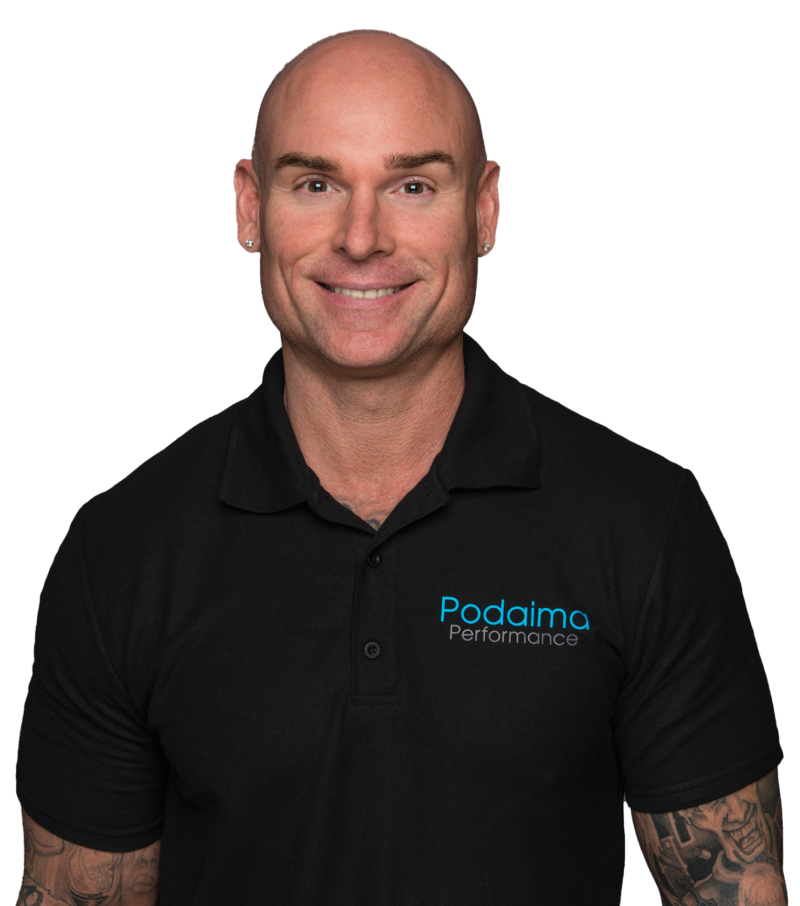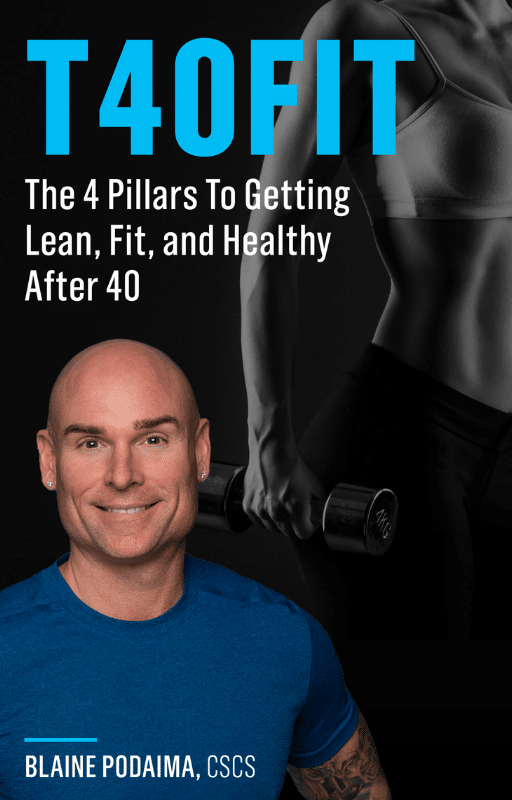In the world of fat loss, there are many tips most of you are probably familiar with. Base your diet around whole-food sources. Expend more energy. High-intensity interval training is better than long bouts of steady state cardio. The list goes on and on.
There are plenty of other tips and tricks, however, that are often overlooked. First things first, it’s definitely essential to nail down the big things first. Eat a whole-food diet, add resistance training, eat enough protein – all of these staple habits should be established first. However, if you’re one of those who’s already fit with good habits, and want to take it to the next level, these tricks are for you. Let’s get started.
Ensure Adequate Hydration
You probably think you drink enough water; at the very least, I know you’ve heard that drinking more water is good for you. We’ve all heard that from a young age. However, this is important enough that it needs to be re-emphasized.
Not only can dehydration cause fatigue, headaches, hunger, mood swings, decreased performance, and of course thirst, it has a negative impact on fat loss as well. Adequate hydration is essential for proper cellular functioning on all levels, and without it, your fat loss efforts will be hindered.
In addition to cellular effects, the fact is that dehydration just makes you hungry. A lot of times you may feel very hungry, when really all you need is some good old water in your life. Eating more, when really you’re just thirsty, is a really great way to slow your fat loss. Drink more water, you need it. If you feel thirsty, you’re already dehydrated.
The best way to get this done? Forget all those crazy formulas on how many ounces per pound and blah blah. That’s important, sure, but let a health professional sort that out for you. Just start by drinking a big glass of water first thing in the morning, a glass every time you eat, and sip water throughout the day between meals. You should never feel thirsty.
Pro-tip: If you find yourself using the bathroom a lot when you first increase your water intake, don’t worry – you’ll adjust and the flow will slow down. Stick with it. Speaking of urine, if it’s clear, you’re hydrated enough.
Sleep
Sleep, just like water, is one of those things you’ve heard about over and over, but really needs to be re-emphasized. Similar to water, it not only has effects on mood and training, but physiological effects as well.
For starters, nobody enjoys being tired. Given the choice between jumping out bed ready to go, or dragging yourself out of bed after hitting the snooze button a few times, I think it’s obvious what most would choose. Being tired can make you cranky, unmotivated, and make your workouts awful. The last thing you want when in a fat loss phase is unnecessary fatigue, as you’ll most likely feel less energetic than usual anyway, simply because you are eating less.
It’s important to be able to push yourself to the proper intensity level during your training, and if sleep is suffering, that will never happen. Sure, you can pump yourself full of pre-workouts and stimulants, but unless you want to end up feeling like a strung-out zombie after your training ends, this is far from ideal. Not to mention the negative effects on your adrenal system that come with caffeine abuse. Get your sleep and you’ll be able to push yourself harder, which equals greater fat loss results.
During sleep, your body is doing a lot to repair yourself, and a big part of this repair involves the release of growth hormone, something you may have heard of. Not only does growth hormone make you, well, grow, it’s also a potent fat burner. Hard training plus adequate rest equals a strong release of growth hormone, which means better recovery, muscle growth, and boosted fat loss.
Get your sleep. Do what you need to do to make sure you can get 7-8 hours each day, and your body will thank you, I promise.
Removing Carbs in the Morning
This is an interesting one, and one that requires a bit of explaining, so pay close attention. There’s a lot of bro-science out there involving carbohydrate timing. You’ve probably heard that most of your carbs should come in the morning, since your body is depleted and you need the energy. While this sounds good in theory, it’s ultimately not 100% true.
Now, the most important thing in fat loss is total overall calories. We’ve seen this again and again in research; meal timing and/or the number of meals consumed doesn’t matter. What matters is the total caloric intake, and if you want to take it further, the macronutrient breakdown. Many of the flexible dieters out there preach that you can eat whatever you want, whenever you want, as long as you fit your macronutrient numbers, and while this may work, it’s not optimal. We want optimal.
For a long time, fitness experts such as Charles Poliquin have preached a diet that involves a protein and fat breakfast, absent of carbs. These experts emphasize numerous benefits of this, including fat loss benefits, mental benefits, energy stabilization, hormonal effects, and others. And now, in the last few years, we have some lab research that suggests this may in fact be very, very effective.
Dr. Jacob Wilson at the University of Tampa has talked about research his graduate students have been doing in his human performance lab. Dr. Wilson specializes in muscle hypertrophy and fat loss – the doctor of bodybuilding, if you will. While not all of the research has been published yet, according to the good doc, his team have been finding some very interesting results.
Dr. Wilson believes that you can program your body by the first meal you eat. He says that if your first meal is carbohydrate-dense, your body will look to use primarily carbohydrates during the day for it’s fuel source. If your first meal is protein/fat dense, your body will prefer to burn fat during the day. This is a slap in the face of the flexible dieters who wake up eating donuts and pop-tarts every morning, claiming it doesn’t matter.
In his lab, the graduate students had subjects consume the same protein/carb/fat ratios in a fat loss phase. Some of the subjects had carbs and protein for breakfast, and some had a protein and fat only breakfast. After a period of time, the subjects who had fat for breakfast ended up losing more body fat – a strong case for keeping carbs out of your first meal. If you’re currently eating oatmeal or cereal or anything else carb-heavy in the morning, swap it out for some whole-eggs with veggies, and a small side of nuts or cheese. You’ll feel better, have more mental clarity, and more importantly, command your body to burn more fat during the day.
Density Training
Ah, density training. The old-school staple made popular by Charles Staley, and carried on today by coaches like Poliquin, John Romaniello, and many more. If you’ve never tried density training, you’re in for a treat.
Density training is a style of training that focuses on increasing total work volume – but not by just adding more sets. In a density-style workout, your idea is to do more work in the same amount of time, OR the same amount of work in less time. You’re not there to have a 2-hour lifting session with 2-minute rests between every set.
The advantages of this are many. For one, you are increasing your work capacity, which is your body’s ability to pump blood and oxygen to the working muscle under stress. This is definitely not easy, but it’s very good for you body.
In relation to fat loss, the reason this helps is the extra caloric expenditure. When you do more work, you expend more energy, end of the story. If you do 100 reps in 10 minutes, and then the next session you do 150 reps, same weight, same intensity, in the same 10 minutes, you’ve burned more calories in the second session by increase your total training volume. And, as you’ve given your muscles more stimulus, this a great way to ensure you hold on to your muscular size and density (no pun intended) as you lose bodyfat.
If done correctly, this will also smoke your lungs. Similar to high-intensity interval training, anything that pushes your heart rate very high will have lasting metabolic benefits long after the workout. You’ll be fighting hard to recover and restore your body to it’s resting state even after you leave the gym, and process that uses energy. So not only are you getting the strength benefits and direct fat loss benefits, you’re burning calories way after you leave the gym, as well as increasing your cardiovascular health.
If you want to try this out, I recommend starting with some opposing-movement supersets, such as push-pull movements, or upper-lower. For example, set a weight on a bench press and bent-over row, and aim for 10 reps of each. Now set a timer for 20 minutes. Your goal is to perform as many supersets of 10 bench presses/10 rows as you can within that 20 minutes, resting as needed. Record your total reps number, and try to beat that the next time you train.
Carb Cycling
The last one here is one that you may have heard, but is still worth mentioning. Too often, magazines and so called “experts” preach an all or none approach to carbs. If you’re sedentary, then maybe a very low carb diet is for you. However, if you’re reading this, you probably aren’t sedentary. You train, and you need carbs. Enter carb cycling.
Carb cycling is a very simple concept – on some days you eat a lot of carbs, and other days you eat less. However, the actual application can be a little tougher. How many carbs is a lot? How low should my low-carb days be? When should I eat them? There a lot of questions, so let’s just break down a very simple, stress-free way to do this if you want to get started.
By the time you consider carb-cycling, you should have all the foundation laid. You’ll be eating a whole-food based diets, full of meats, veggies, nuts, a little bit of dairy here and there, and some starchy carbs, like rice, potatoes, and maybe some oats. If you’re still struggling to get a nutritious, well-rounded diet in place, this may not be for you.
Anyways, disclaimer aside, let’s talk about how to implement this. If you want the most simple approach, follow this rule. On days you implement resistance training, consume carbs pre and post workout. On days you rest, consume only trace carbs from your food, and maybe one serving of fruit for the micronutrients. How many carbs on training days? This will vary depending on a few things, including your weight, age, gender, training intensity, goals, and a few other things, but in general, you should aim for between 30-60 grams pre and post workout, to maximize performance and recovery.
30-60 minutes before you head to the gym, have a serving of fruit with some protein. After the gym, have 1-2 servings of a starchier carb – a potato, a cup of rice, something like that. If you carry a lot of muscle mass, had an extra intense workout, or find your recovery is lacking, you may want to add carbs to your post-workout meal AND the meal after it. Outside of this, the remainder of your meals should be primarily protein, veggies, and some fats.
On your rest days, just eliminate the post-workout carbs, and put the fruit wherever you want it. Remember, this is for a fat-loss program – for maintenance or muscle gain, you’ll want more carbs than this. But as you can see, it’s a very simple concept, and one that drastically increase results if you are stuck.
It’s just about impossible to give out specific numbers that apply to everyone, but in general, a good guideline would be to keep carbs around or below 50 grams on rest days. On training days, for guys keep your carbs between 150-200, depending on your weight and carb tolerance. For the ladies, you want your training day carbs anywhere from 75-150, again, depending on your weight and carb tolerance. If you feel recovery is slow, or you increase your training volume, add more. If you feel recovery is fine, and fat loss is slow, take some carbs away. Nice and easy.
References:
http://www.benpakulski.com/003-dr-jacob-wilson-interview-with-ben-pakulski-john-meadows/
https://www.t-nation.com/workouts/escalating-density-training



Good stuff Blaine. I agree with most of the information you presented. Having weight trained for over 30 years and competed in body building and power lifting competitions it is important to eat well to perform well. Never make the mistake of starving yourself to lose weight. Eating correctly should be habit forming and a natural part of your life. If you follow a healthy lifestyle the habits you practice should extend the quality and length of your life. Nutrient timing is important. Using food as a tool to enhance your performance is something all great athletes do. Keep up the good work!
Thanks for the kind words Doug! Yes eating right is so important but misunderstood by a lot of people. I agree it should be a lifestyle change as opposed to dieting, however a lot of people do have control issues with certain foods so just like anything else it is very individualized. What works for some will not work for others. Although in my experience cutting carbs way down works really well for most.
And on a side note I am aware of you and your experience in the area, I have been asked by more than a few times by random people what our relation is!
Anyways thanks for the comment!